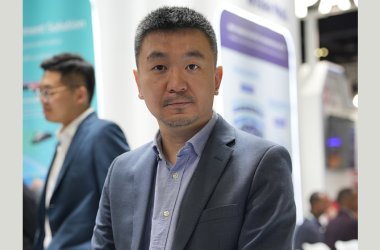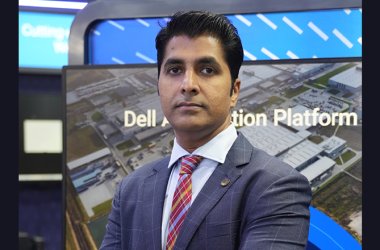
In an exclusive interview at GITEX 2025, Saif Alrefai, Manager of Solutions Engineering, OPSWAT, spoke to Veronica Martin about how the company is protecting critical infrastructure in the Middle East – deploying AI-driven innovation, an elite ‘SWAT’ team, and hands-on experiences putting visitors firmly in the driver’s seat.
OPSWAT is making its strongest ever showing at GITEX this year. What message do you most want to deliver to the market through your presence here?
The message we’d like to share with our valued partners and customers is clear: the threat landscape is constantly evolving – and accelerating. With the rise of AI, we are standing on the brink of major technological breakthroughs, from post-quantum safe encryption to quantum computing, but with this progress comes new and more sophisticated threats. At OPSWAT, we recognise that traditional approaches are no longer enough. We need to think differently about how we detect and prevent emerging risks. That’s why we want our customers to know – they’re covered.
Our mission is to secure the world’s most critical infrastructure, with a special focus on protecting the region’s vital systems. We are experts in critical infrastructure protection, and if you need support, we are here to help you safeguard what matters most.
The OP/X Mini Lab is a highlight at your stand. Can you walk us through how this immersive setup helps organisations visualise and validate their defences in real-world terms?
The OP/X Mini Lab is an immersive, hands-on experience designed to bring our entire product ecosystem to life. It showcases over 20 solutions spanning IT, OT, and cross-domain technologies.
Our goal is simple: to help customers see and experience real-world threats and solutions in action. Instead of a standard demo or static product presentation, we put visitors directly in the driver’s seat, allowing them to explore, interact, and truly understand how our technologies perform in realistic scenarios.
For prospective customers, the OP/X Mini Lab also serves as a mini proof of concept right on the GITEX floor, helping them evaluate solutions and make confident decisions faster than ever before.
How is OPSWAT helping organisations in the region strengthen the resilience of their critical infrastructure?
We approach this in several ways. First and foremost, we continuously integrate the latest technological advancements in cybersecurity, investing heavily in AI and emerging technologies to strengthen and evolve our products.
We also recognise that our customers in this region never settle for anything less than excellence, and we hold ourselves to the same standard. Beyond innovation, we focus on helping our clients achieve and maintain compliance with a wide range of cybersecurity frameworks, both regionally and internationally.
In the Gulf, for example, each country has its own set of cybersecurity standards for sectors such as banking, government, and federal entities. Our mission is to guide customers through that landscape; not just to help them tick a compliance box, but to ensure they are truly protected and operating at the highest level of security.
You’ve also announced the formation of Unit 515. How does this elite red team differ from traditional cybersecurity testing approaches, and what value will it bring to customers?
Last year, we spoke a lot about shifting cybersecurity from a reactive stance to a more proactive philosophy, and Unit 515 is essentially our answer to that. It represents OPSWAT’s proactive approach to cybersecurity in action.
Unit 515 is a dedicated team of elite cybersecurity researchers whose mission goes far beyond traditional penetration testing or red teaming. Rather than following standard templates, they design highly-customised scenarios tailored to each customer’s specific environment and threat landscape.
Their process involves understanding the customer’s infrastructure, identifying which threats are most likely to occur, and then simulating realistic, targeted attacks to mirror what an actual hacker might attempt. This hands-on, intelligence-driven approach helps organisations uncover vulnerabilities before adversaries can exploit them.
Beyond simulation, the team actively conducts vulnerability research and has already discovered and registered numerous vulnerabilities in widely used software under OPSWAT’s Unit 515 name.
Looking beyond GITEX, how do you see OPSWAT’s role evolving in the Middle East as governments and enterprises accelerate digital transformation?
The Middle East today stands at the heart of the global AI revolution; it’s home to many of the world’s top-ranked nations in both artificial intelligence adoption and cybersecurity readiness. We’re incredibly proud to be part of this dynamic region and inspired by the visionary investments being made by both the public and private sectors in building a resilient, forward-thinking technological future.
At OPSWAT, our mission aligns perfectly with this vision. There’s nothing more vital than safeguarding critical infrastructure: the systems that power and protect our societies. As these infrastructures become increasingly digitised, they also become more vulnerable, requiring specialised protection from organisations that truly understand their complexity.
We recognise that securing critical infrastructure is very different from securing a typical enterprise. It demands a deep understanding of IT and OT convergence, cross-domain solutions, and the nuances that define operational resilience. That’s why we’re not just focused on the present; we’re actively preparing for what comes next – from AI integration to post-quantum encryption and quantum computing.
Some might say it’s too early to look that far ahead, but in cybersecurity, there’s no such thing as ‘too early.’ The threat landscape evolves at lightning speed, and our goal is to always stay one step ahead – protecting not only the region’s critical infrastructure but also contributing to the security of the world at large.
Image Credit: OPSWAT





